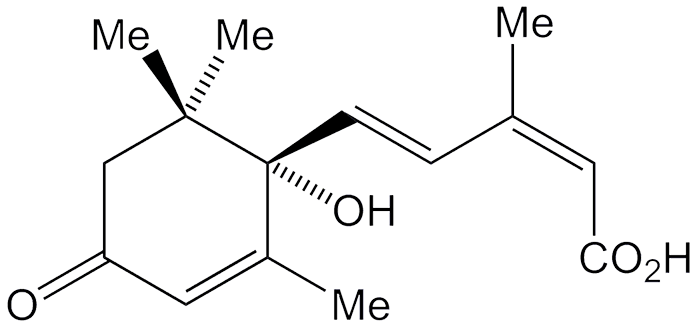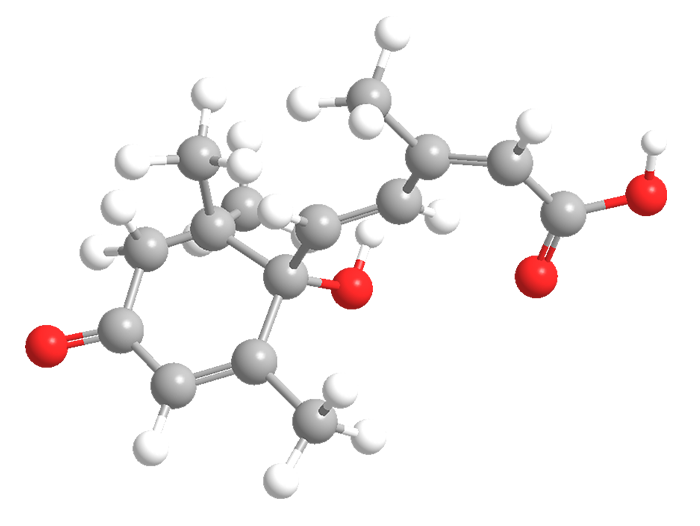

Abscisic acid is a hormone that can cause plants to lose their leaves, a process known as abscission. In the 1960s, researchers determined its structure and showed that it is found in many plants. Subsequent research showed that it is involved with abscission in only a few plants but that it is an important signalling molecule for responses to environmental stresses.
It was once thought that applying abscisic acid to crop plants would help them resist drought. But the hormone is expensive to produce, has a short half-life, and is photodegradable. Recently, S. R. Cutler and colleagues at the University of California, Riverside, discovered that the sulfonamide quinabactin binds and activates abscisic acid receptors. This compound may eventually be used to help plants retain water and resist drought, but much developmental and regulatory work needs to be done.

Learn more about this molecule from CAS, the most authoritative and comprehensive source for chemical information.
Molecule of the Week needs your suggestions!
If your favorite molecule is not in our archive, please send us a message. The molecule can be notable for its current or historical importance or for any quirky reason. Thank you!
Stay Ahead of the Chemistry Curve
Learn how ACS can help you stay ahead in the world of chemistry.

